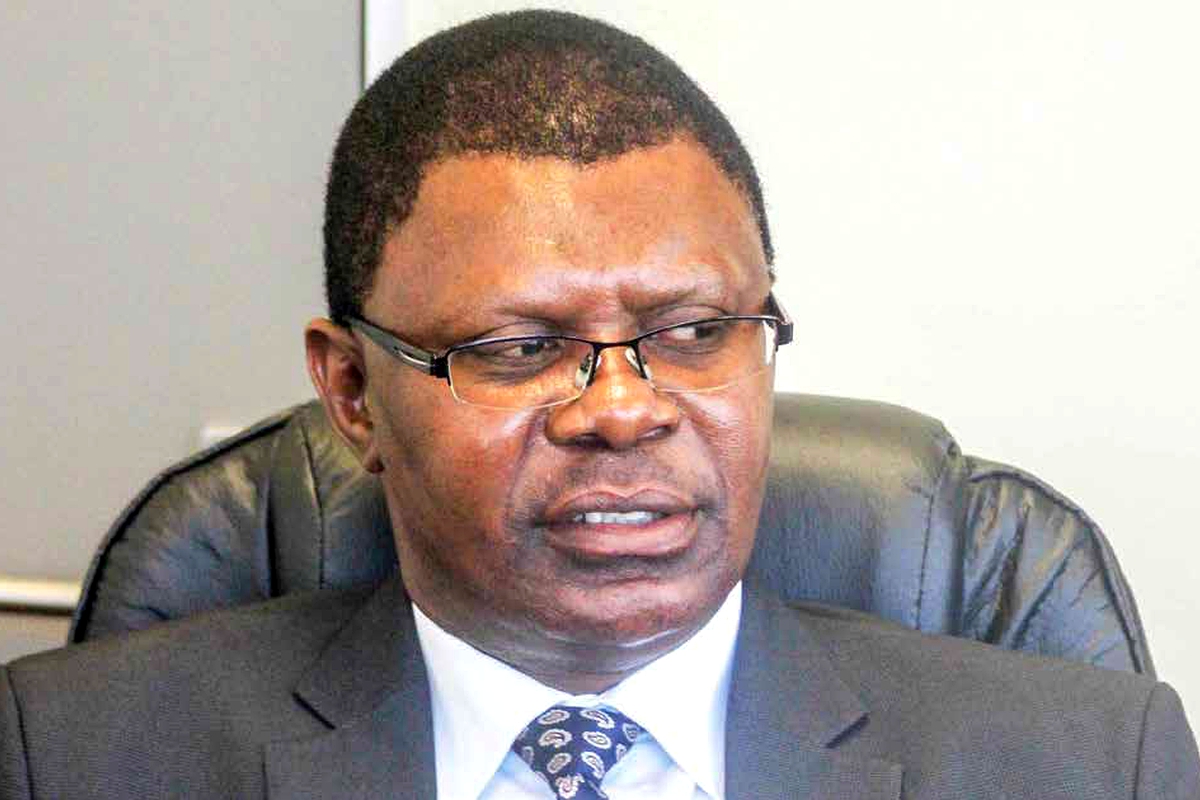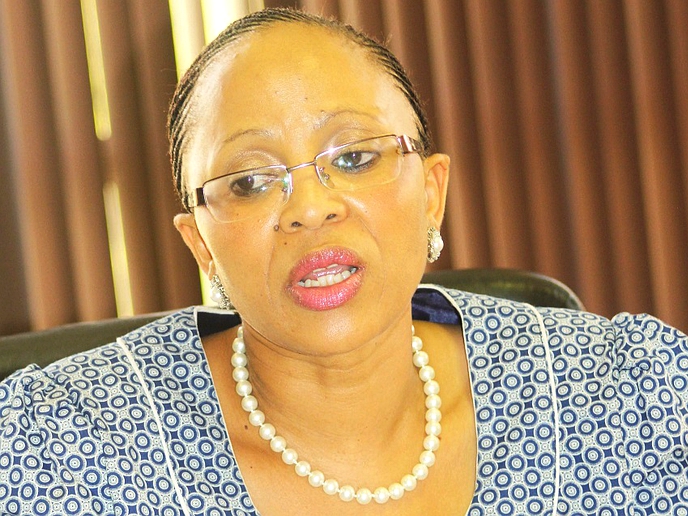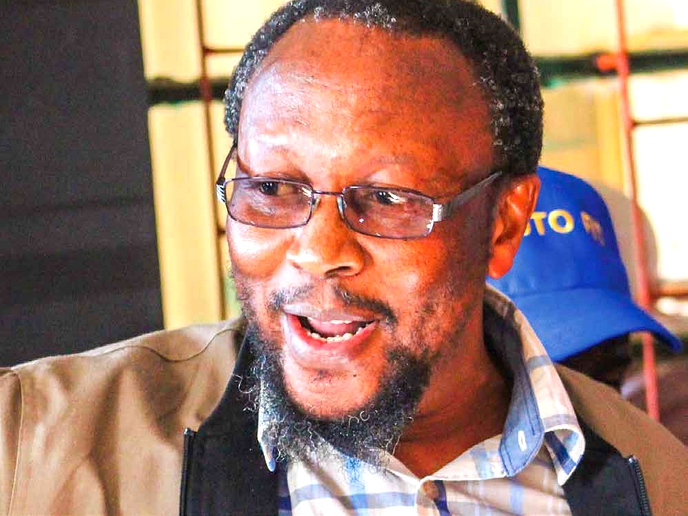MASERU - Life after retirement may be an exciting moment and interpreted as an achievement by most employees across the board. It is seen as a time to finally relax, turn off the alarm clock and engage in other exciting and less time demanding projects.
business
July 30, 2020
NEO SENOKO
7 min read
Pension Fund and its roles

CEO of Public Officers’ Defined Contribution Pension Fund Thabo Thulo
But then again for many workers, when it actually happens, the transition to retirement can feel daunting. It is during this period that some people begin to worry about what is going to happen next. Most importantly, the financial aspect of retirement remains highly important. Without financial independence, retirement age can be the most daunting and stressful, many pensioners have said. It is with this little background in mind that the Government of Lesotho (GoL) decided to introduce the Public Officers’ Defined Contribution Pension Fund in 2008.
The Fund was established with the promulgation of the Public Officers’ Defined Contribution Pension Fund Act of 2008. It came about as a result of Government’s decision to change from the Defined Benefit to a Defined Contribution. Since 1964 during the colonial rule, the Government of Lesotho has been running a pension scheme through a Pension Proclamation and it was in the form of a defined benefit.
However, government was confronted by the situation where the economic activities are declining. Specifically, SACU revenues and other economic benefits have been shrinking.As a result, it was highly imperative for the establishment of this fund, since it gives both employer and employee a good opportunity to put money aside and get it invested so that the shrinking government coffers would not come at a huge cost to future pensioners.
Under the Public Officers’ Defined Contribution Pension Fund, a member’s contribution in terms of the act shall be deducted by his or her employer from his or her salary or wages and shall, together with the employers’ contribution, be paid into the Fund’s bank account monthly in installments. The employer shall ensure that the contributions are paid to the Fund’s bank account on the first working day of the calendar month in respect of which the contributions are payable.
“With this, government decided that it will contribute five percent towards each and every employee’s fund, with each member contributing another five per cent from their salaries to make up the required ten percent which then forms the retirement benefit,” said the Public Officers’ Defined Contribution Pension Fund Communications Officer Machona Lebalele in an interview with Metro last week Saturday. For instance, if an employee earns M1 000 a month, he will pay five percent of M1 000 which equates to M50. That means M50 will be deducted from his salary every month into the Fund.
Similarly, the government will also contribute another M50 a month into the same account.“These contributions will be recorded in the Fund in your name exclusively for your benefit, which together with the investment returns earned, will be paid upon leaving the Fund or during retirement,” Lebalele showed. He said these contributions, unlike before, qualify for investment opportunities. The investment office within the institution constantly looks into the best investment opportunities from different registered entities in Lesotho and South Africa.
The purpose of the investment committee is to provide an oversite function on behalf of the board over investment matters relating to the Fund. Under the stewardship of Thabo Thulo - the chief executive officer, the institution also works hand in hand with the Central Bank of Lesotho (CBL) through bonds and other liquidity facilities that can be purchased by the Fund. After every three months, the investment team submits reports to the investment committee which subsequently reports to the board of trustees.
“It is also important to note that Government takes care of all the expenses that may be incurred in all these processes. That means, out of the 10 percent contributions made by both the employee and Government towards the Fund, no further deductions will be made. The beneficiary gets all the money with interest,” Lebalele said. The investment committee within the Fund is made up of some members of the board. The board is made up of 14 members representing different stakeholders. All committees within the Fund report to the board.
Out of the 14-member representatives of the board, five are from Government and are appointed by virtue of their positions in their respective ministries. The Principal Secretary (PS) in the Ministry of Finance automatically becomes the Chairman of the Pension Fund Board. Accountant General from the same ministry is another Government representative within the board together with another member from public service who automatically joins in as the director of remuneration and benefits.
Government is further represented by the director of TSD as well as a senior officer from one of the disciplined services in the country. Apart from those representing the government, the board also consists of four members who represent employees. These representatives are also divided into four groups of teaching services, local government services, public service and another one from the disciplined services.
Moreover, four other members of the Pension Fund Board are those representing members of the public under the title - department trustees. Unlike other groups, those in this category are selected based on their level of expertise in different areas. The last member is the one representing pensioners.
The tenure of office of members other than the ex officio members is five years. In the case of death of an employee, the rule is that family members will receive full benefits on behalf of the deceased. A cash lump sum benefit will be paid. This lump sum includes the Fund Credit plus a risk benefit equal to the deceased person’s annual salary as at date of death.
Enjoy our daily newsletter from today
Access exclusive newsletters, along with previews of new media releases.
Fund Credit is the total value of the employee’s benefit in the Fund. It is made up of the total contributions made by the employee and government towards the retirement benefit. For instance, if the Fund Credit at the time of death was M47 000 and the annual income was M30 000, the dependents will receive M47 000 plus M30 000, thus equal to M77 000.
It also includes any amount transferred from the previous Fund if applicable as well as investment returns earned and the past service liability reserve. The death benefit therefore, shall be paid to the dependents and nominees as indicated in the deceased’s nomination of Beneficiary Fund. Nomination forms must be completed and regularly updated if necessary to ensure that the benefit is paid to the right person without any delays.
The benefits will be subject to tax as enforced by the Income Tax Act of 1993 amended.
For people that resign or are retrenched for any reason before they reach the Prescribed Retirement age, such employees will be entitled to a cash lump sum benefit equal to the Fund Credit, but excluding any Past Service Liability Benefit.
“When a person is fired for one reason or another, we also deduct all the amount that such person may, for one reason or another be owing to the Government. Such amount may include the National Manpower Development Secretariat (NMDS) debts and any other form of debts to the Government if present,” Lebalele emphasised.
On the other hand, things are different for people who stay loyal to their employer for the longest time until reaching the prescribed retirement age as defined in the applicable legislation.
The prescribed retirement ages apply differently towards different services. For discipline service, the retirement age starts at 55 and 60 for Local Government and Public Service, respectively. For the teaching service, the rightful age to retire is 65. A person may retire within 10 years from their prescribed retirement age. Government’s consent is also required for one to qualify for early retirement.
“A six-month notice is required from a person who is willing to retire early. This is to give the employer enough time to look into the matter and ensure that and everything is in place when the day arrives.When an employer is satisfied that everything is in order, they then sent all the right documentation to the Pension Fund which will then begin with the process of payment,” Lebalele also said.
It takes only eight weeks for Pension Fund to release retirement packages to beneficiaries and only four weeks for someone who is fired.
However, Lebalele warned that sometimes, delays are caused because the file takes a longer time than normal on the side of the employer due to the auditing processes and that means such payments may be slightly delayed.
At retirement, a person has the option to purchase an annuity with their full fund value or may decide to take a portion of a lump sum, 25 percent at maximum while the balance will then be used to purchase an annuity.
In terms of the Act, annuity may be defined as a contract or policy sold by an insurance company designed to provide payments to the holder at specific intervals after retirement.
With annuity, such person will receive a monthly salary every month for the rest of their lives. At this stage, a person is also at liberty to choose where their monthly salaries should be deposited. One may choose to stay with the Pension Fund or decide to work with any other legally registered insurance company. Staying with Pension Fund also means one may choose to receive their monies either through single life or joint life pension with guarantees thereof.
Tailored for you






